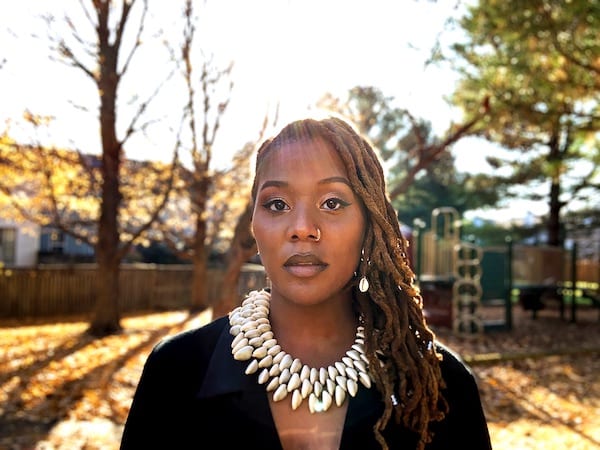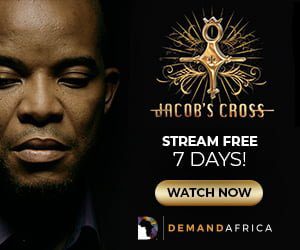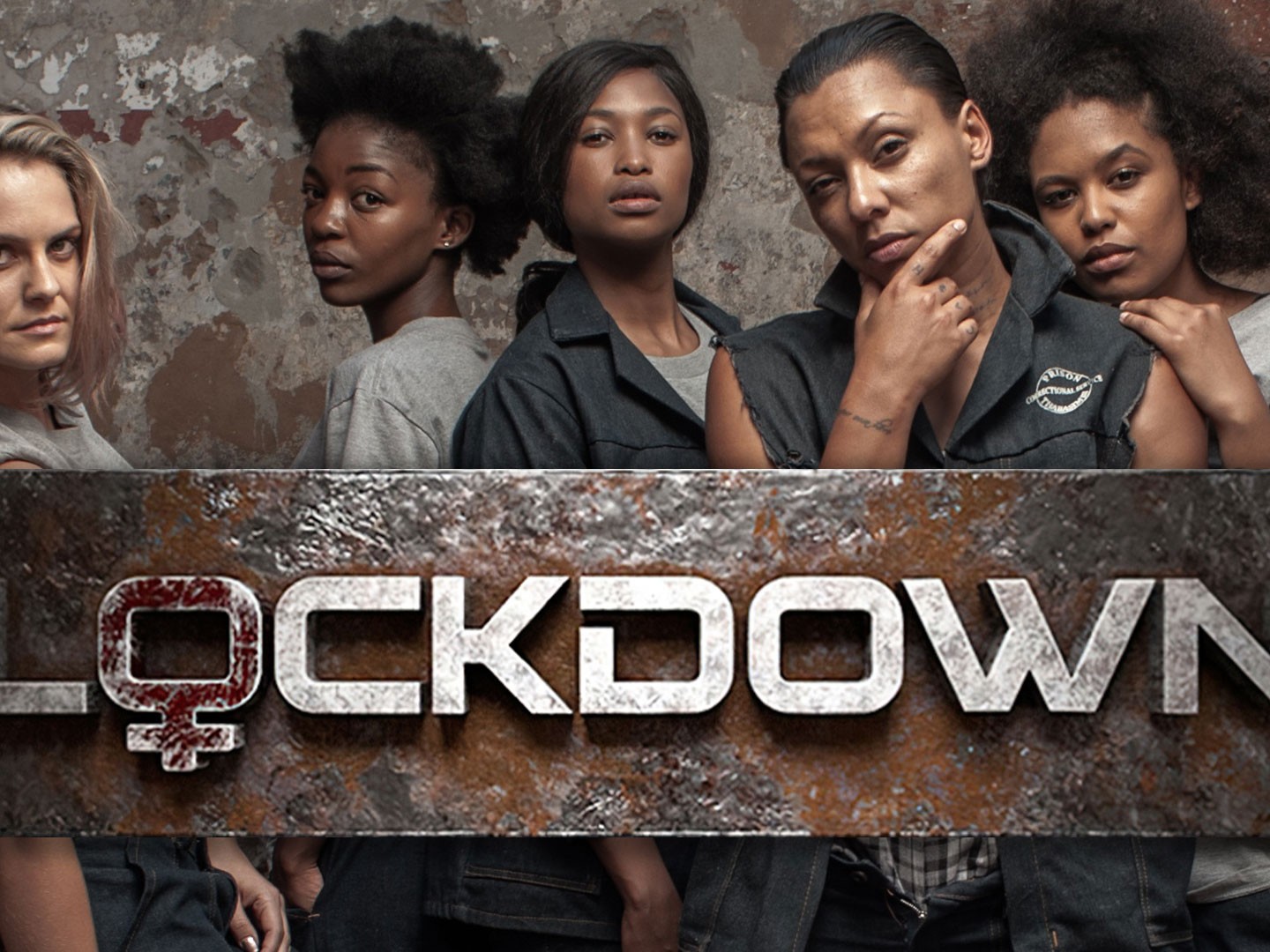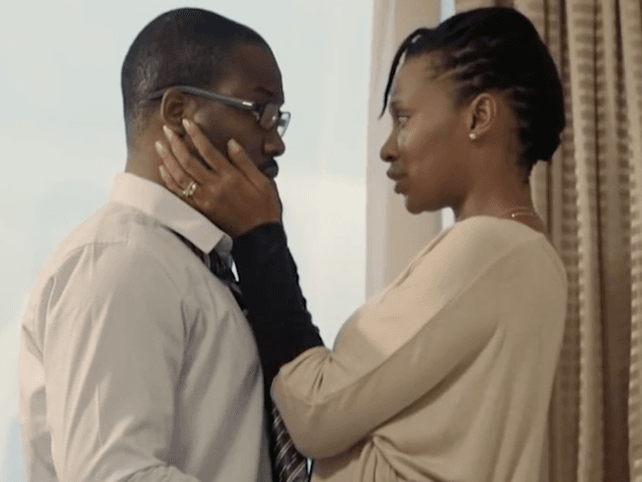Share this!
Celebrating African Women In Film: Interview With Nikyatu Jusu
Black vampires walk among us in the film Suicide By Sunlight, a short movie that screened at Sundance in 2019 from writer and director Nikyatu Jusu. Raised in Atlanta to Sierra Leonean parents, Jusu is a bold, imaginative filmmaker whose work is steeped in African mythology, and Demand Africa caught up with the director to discuss her unique style of storytelling and the importance of African filmmakers telling their own stories.
RELATED: Demand Africa Celebrates African Women In Film

DEMAND AFRICA: Who were some of your early sources of inspiration and mentors?
NIKYATU JUSU: I was never really a cinephile. I still don’t consider myself a cinephile. I’m very much a maker of film but I don’t necessarily love to watch film. I’ve come to like specific filmmakers now, but when I first started, I would say Kasi Lemmons’ Eve’s Bayou was a formative film for me. I was a reader, so I read a lot of content. Authors were inspirational—Nikki Giovanni, Toni Morrison, Chinua Achebe. My intro to filmmaking was mostly through writing. I really have a lot of respect for novelists and writers. My mom is a writer and she self-published a book. Writing was always around me. As I entered filmmaking in college, it was through writing.
DEMAND AFRICA: How has your role as a storyteller shaped your films?
JUSU: Storytelling is hard to pin down. There’s no one-size-fits-all way to tell stories. I’m influenced by West African mythology and our diasporic mythology in the Caribbean, on the continent, the mythologies we carry with us here in America. I think there’s so much to pull from at the intersection of our mythologies with current social issues. There’s so much symbolism with storytelling, especially with African storytelling. It’s easy to apply some of these parables to contemporary stories. Right now I’m working on a feature script about the ethos of abiku, which is mainly based in Nigeria. It’s a Yoruba mythology that explores the concept of a child coming back and dying over and over again under the age of 12, which causes the mother to suffer, but is also an earthly lesson that is supposed to be given to human beings. Using that symbolism, you can tailor that story to so many different contexts.
DEMAND AFRICA: What has had the biggest influence on the types of stories you tell?
My storytelling is heavily influence by fantasy and African mythology. I don’t like to do the straight-forward drama, I’m transitioning out of that and more into fantasy. I definitely appreciate the genres of horror and thriller. I think there’s a lot you can explore in those contexts.
Horror is big right now. I’m lucky that the timing of my interest in horror coincides with what’s happening in terms of the business of the industry. I think a lot of people underestimate having a good idea at the right time. With film, the gratification is so delayed that it seems like I came up with my latest concept recently but I’ve been working on it for seven years. I made a vampire film at a time when horror is really being embraced. Things are happening for me that haven’t happened previously because of the timing of me exploring horror.
DEMAND AFRICA: What skills have you found to be the most useful in you becoming a well-rounded artist?
JUSU: I think as an artist it’s important to consume multiple art forms, not just the art form you work in. Filmmaking is a combination of so many different art forms. I’m a consumer of photography, I’m a consumer of writing whether it’s prose or poetry. I just think it’s important to have a diversity of influences on your work because if you’re constantly just relying on film, it shows in your work that you’re just regurgitating what you’ve seen in movies.
DEMAND AFRICA: Which African filmmakers have inspired you the most?
JUSU: Safi Faye is a foundational filmmaker in the canon of African filmmaking and she is someone who is not spoken about. We often hear about Ousmane Sembène. Faye is Senegalese as well and she has a canon of work that is really important. Unfortunately, with African women filmmakers, we don’t get as much exposure because their work is not as accessible. A lot of people are hard pressed to find the classic foundational filmmakers within the canon of African cinema. Contemporary filmmakers like Rungano Nyoni, she made I Am Not A Witch, and Chinonye Chukwu who just won Sundance with her feature film Clemency, are African women filmmakers who are my contemporaries and are doing really amazing things that I’m really excited about.
DEMAND AFRICA: When you think about the future of filmmaking, what are you most excited about?
JUSU: I’m excited about the potential for us to continue to tell our own stories. For black people, for black women, for African women, for African filmmakers to be able to be at the helm of their own ship and tell their own stories as opposed to allowing people to tell our stories for us. You end up with a situation like Green Book, where white men got together and decided on how a real, living, breathing black man’s history was going to be dictated by them. I think the power of harnessing our own stories is something I’m always excited about, however, we have these ebbs and flows, these black renaissances. I look forward to the consistent momentum in terms of us having a mainstay and being able to be directors and cinematographers and whatever other collaborative positions exist in the film industry. Being in charge of telling our own stories is really important.
About Demand Africa
Demand Africa offers 24-7 access to the largest curated collection of Pan-African TV shows, series, soaps, movies and lifestyle entertainment direct from the continent. Demand Africa goes to Nollywood and beyond to offer a deeper connection to the continent. Explore the culture, people, places and traditions of Africa and stream with IMPACT. Now streaming over 1,000 hours, with content added monthly. 60% of your monthly subscription goes to the featured creators and distributors on Demand Africa.






